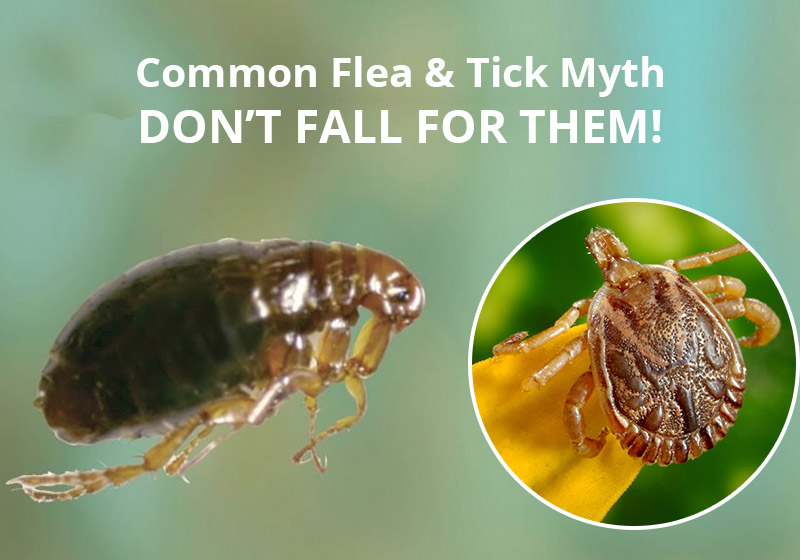
Fleas and ticks are the most common types of parasites that can harm our beloved cats and dogs. And although there are tons of information found on the internet regarding these pesky critters, not all of them can be believed. Well, there are several myths surrounding fleas and ticks. And through this blog, we want pet parents to be alert and well aware of them. So without much delay, let us dive in.
Myths Regarding Fleas And Ticks
First things first, myths are not to be believed because well, they are myths. It can be difficult to differentiate between a myth or the truth, but when it comes to fleas and ticks, we’ll make it a lot easy for you. Just read on to know more.
Some myths about fleas…
Myth 1: Fleas Cannot Be Found During Winters
Winters in America can get really cold and this might have you think that fleas and ticks cannot survive these harsh condition, so they will probably not be found anywhere near your homes. But unfortunately, that is absolutely not true. Fleas and ticks can thrive at any given temperature. Yes, you may see less of them in winters but they are still there, waiting to latch onto a host.
Myth 2: A Solitary Flea Is No Big Deal, Right?
Most of you might not know this but about 95% of a flea population is in the egg, larval, or pupal stages. So if you notice a single flea on your buddy or anywhere in the house, be sure to find hundreds and hundreds of eggs and immature fleas in the environment. This is a cause for concern, yes. And it must be tackled quickly before it gets worse.
Myth 3: No Scratching Means No Fleas?
We tend to associate excessive scratching in pets to perhaps fleas or ticks on their bodies. But that is not always the case. Even if your buddy is not scratching, biting their fur, or licking their skin, they can still be infested with fleas or ticks. Thus, it is highly recommended to always run your fingers on their fur regularly to rule out any parasites on their bodies. And if you spot any, get it treated as soon as possible.




